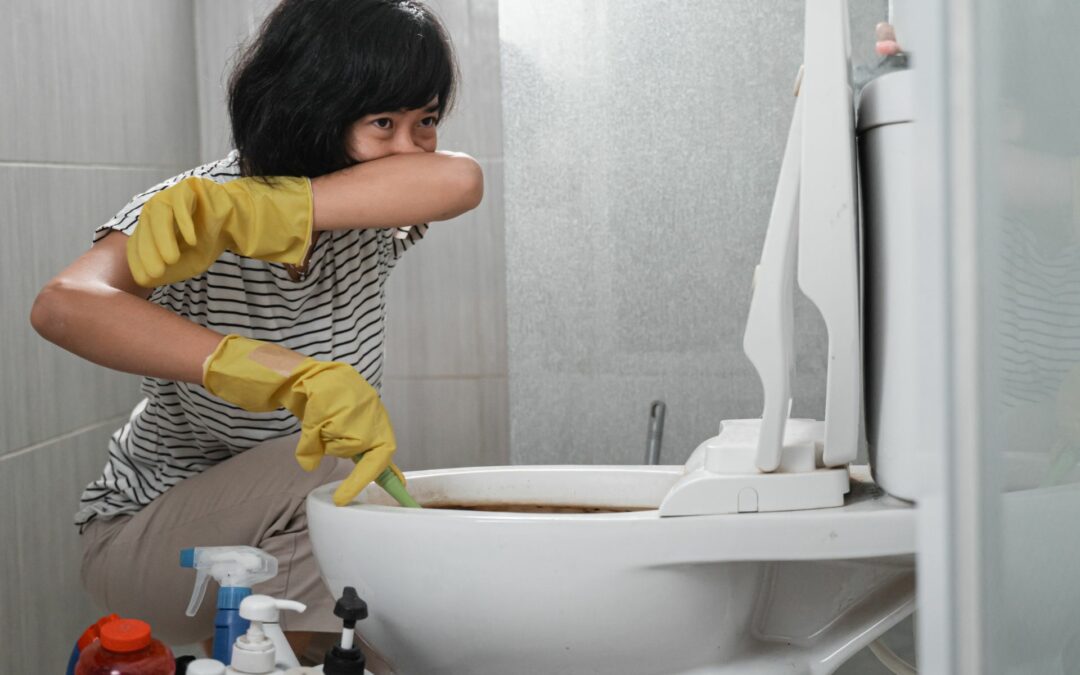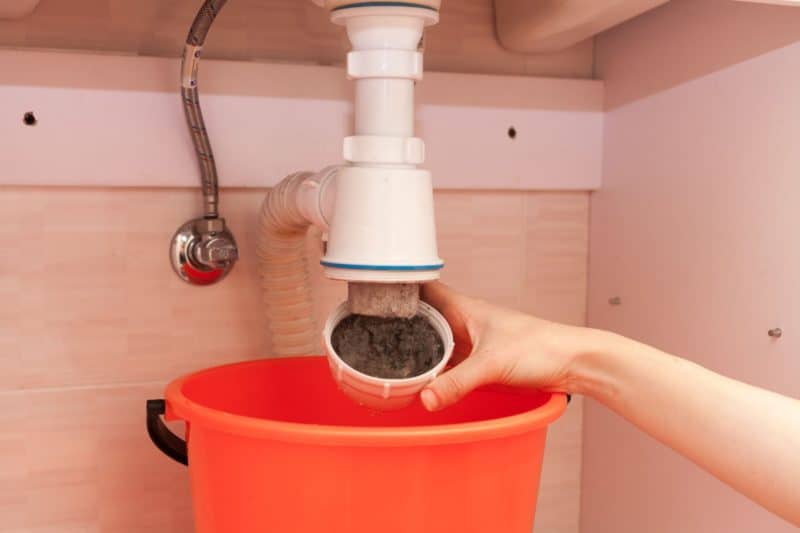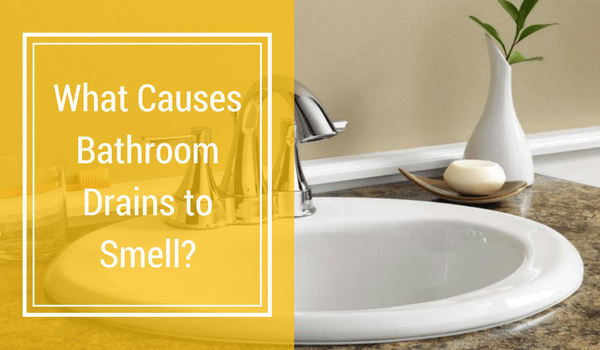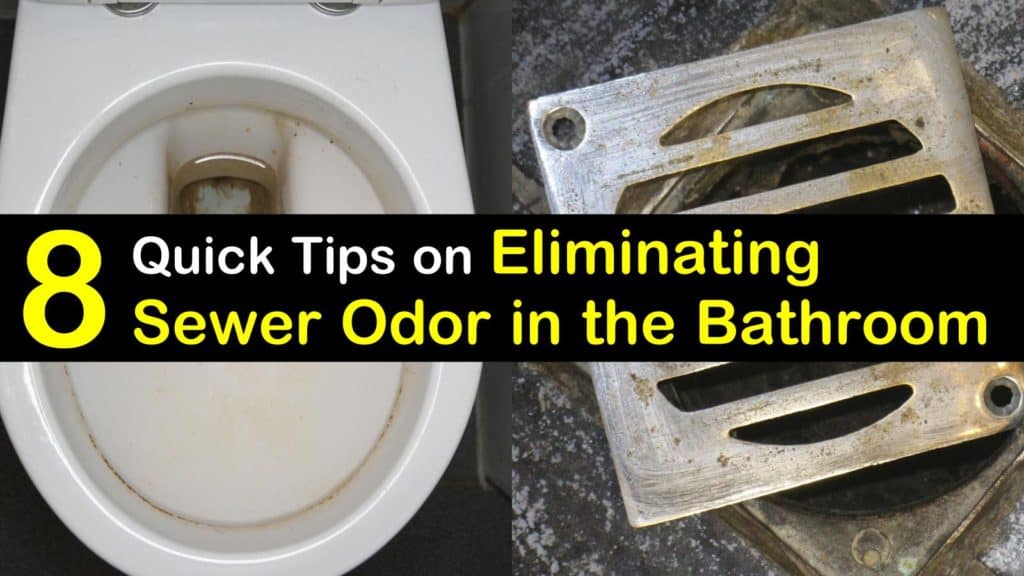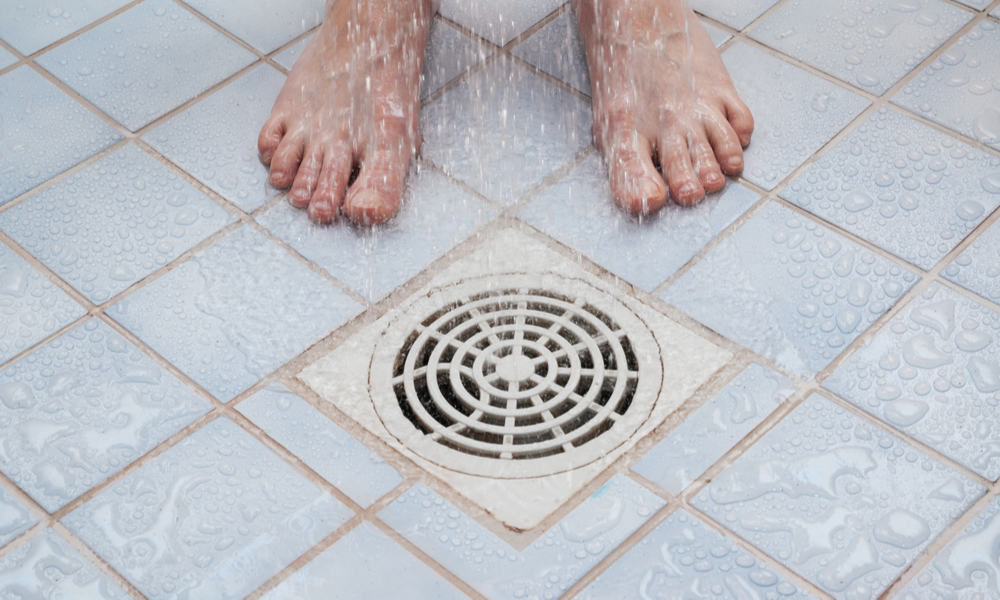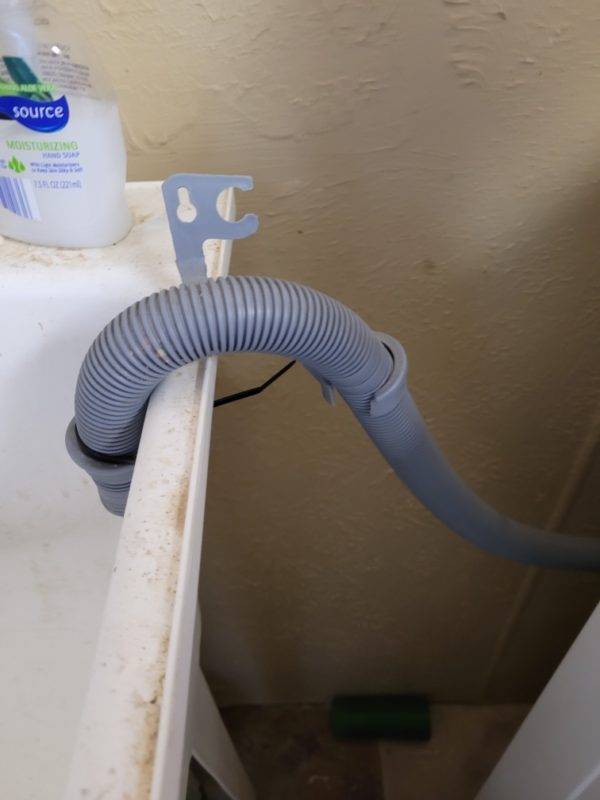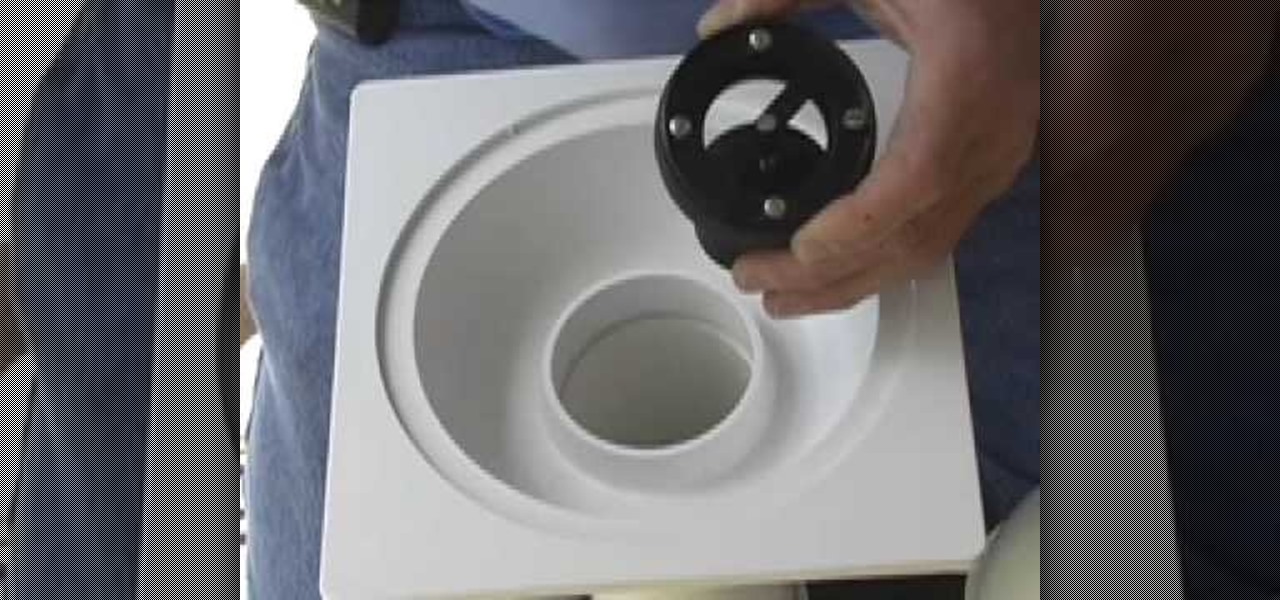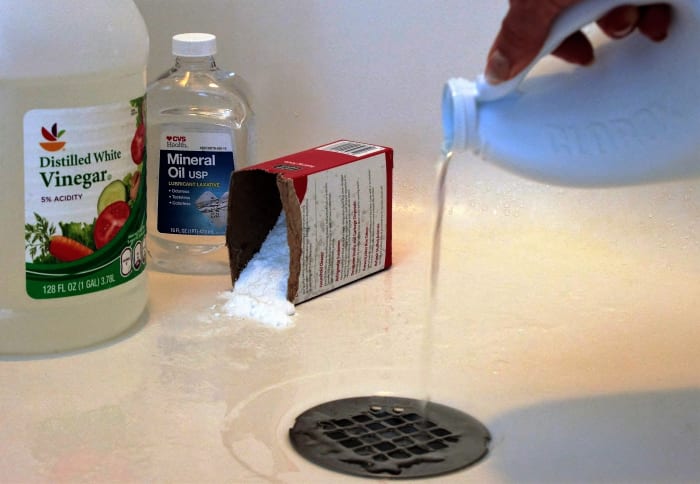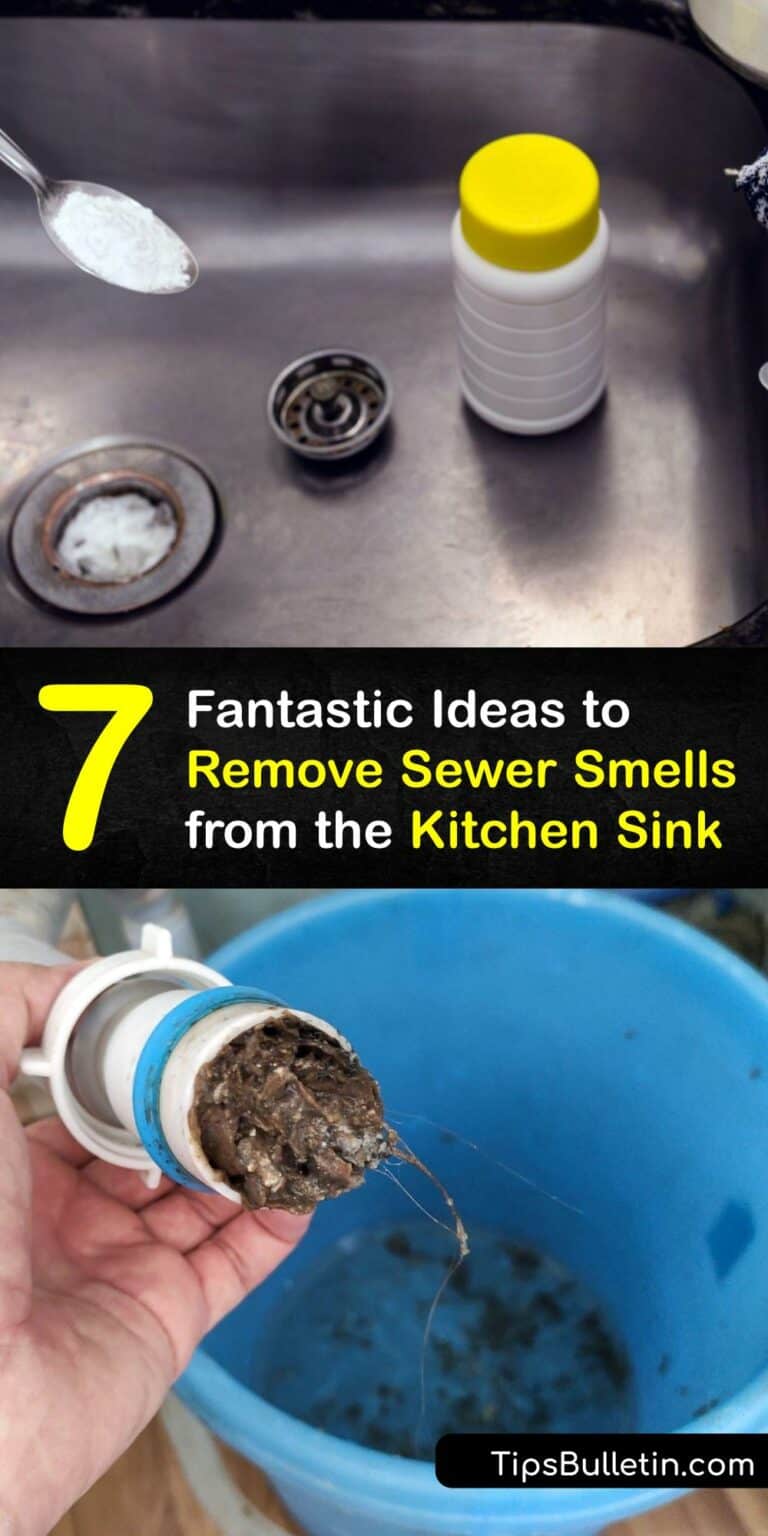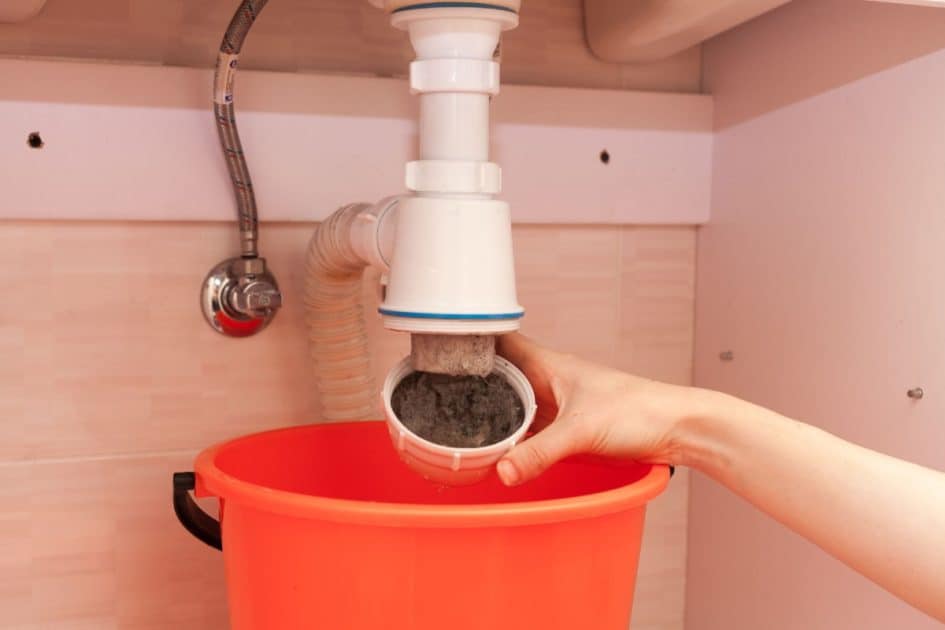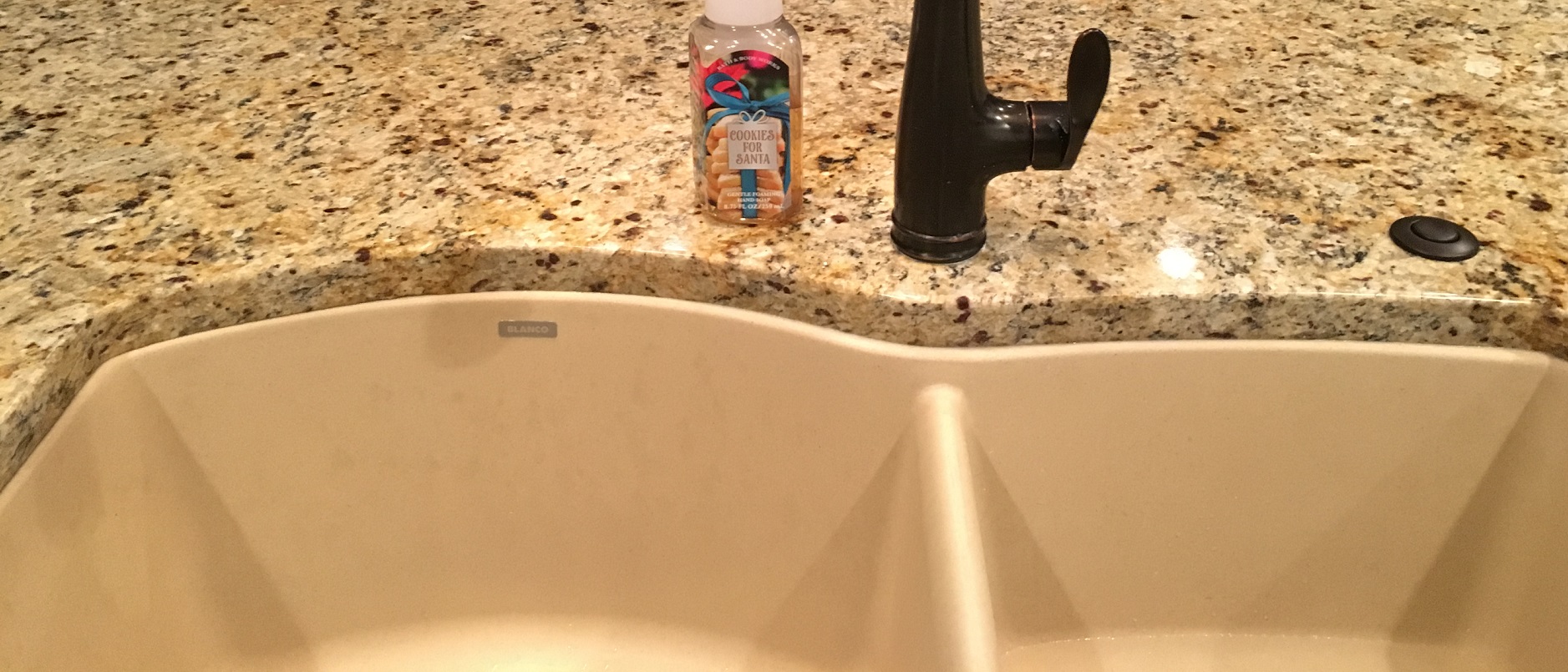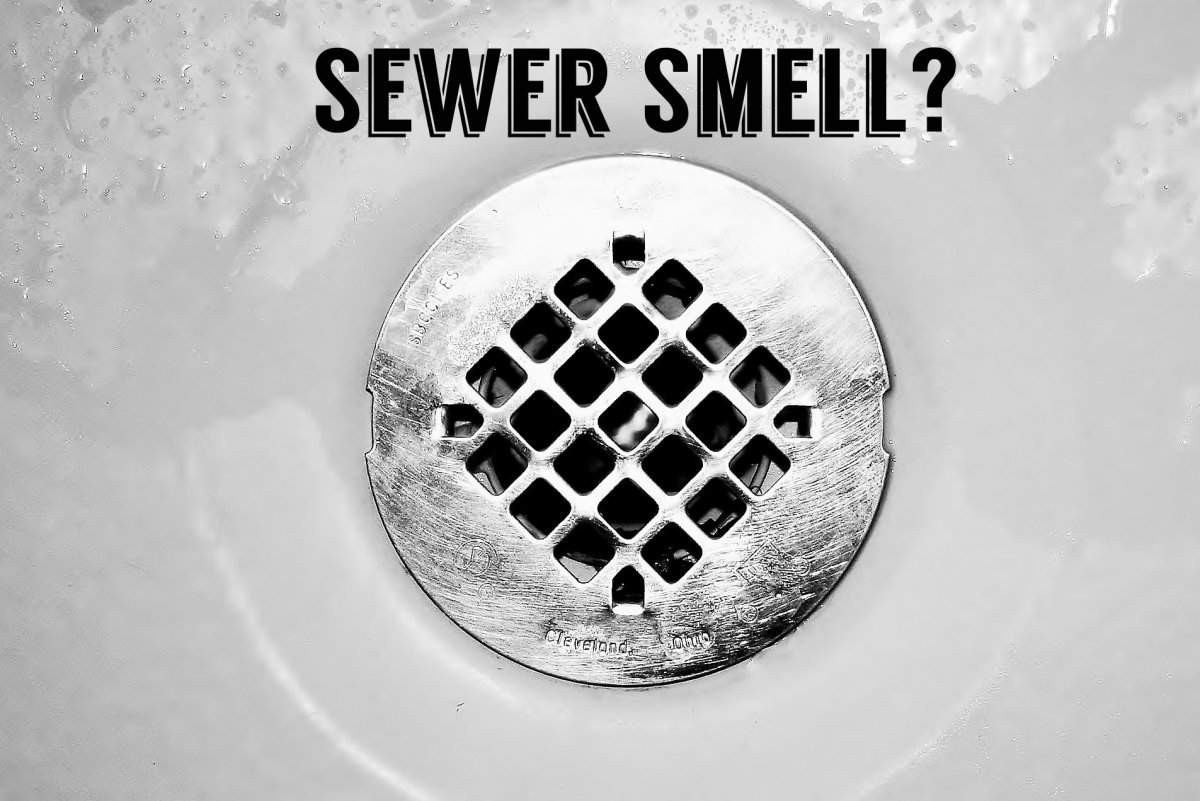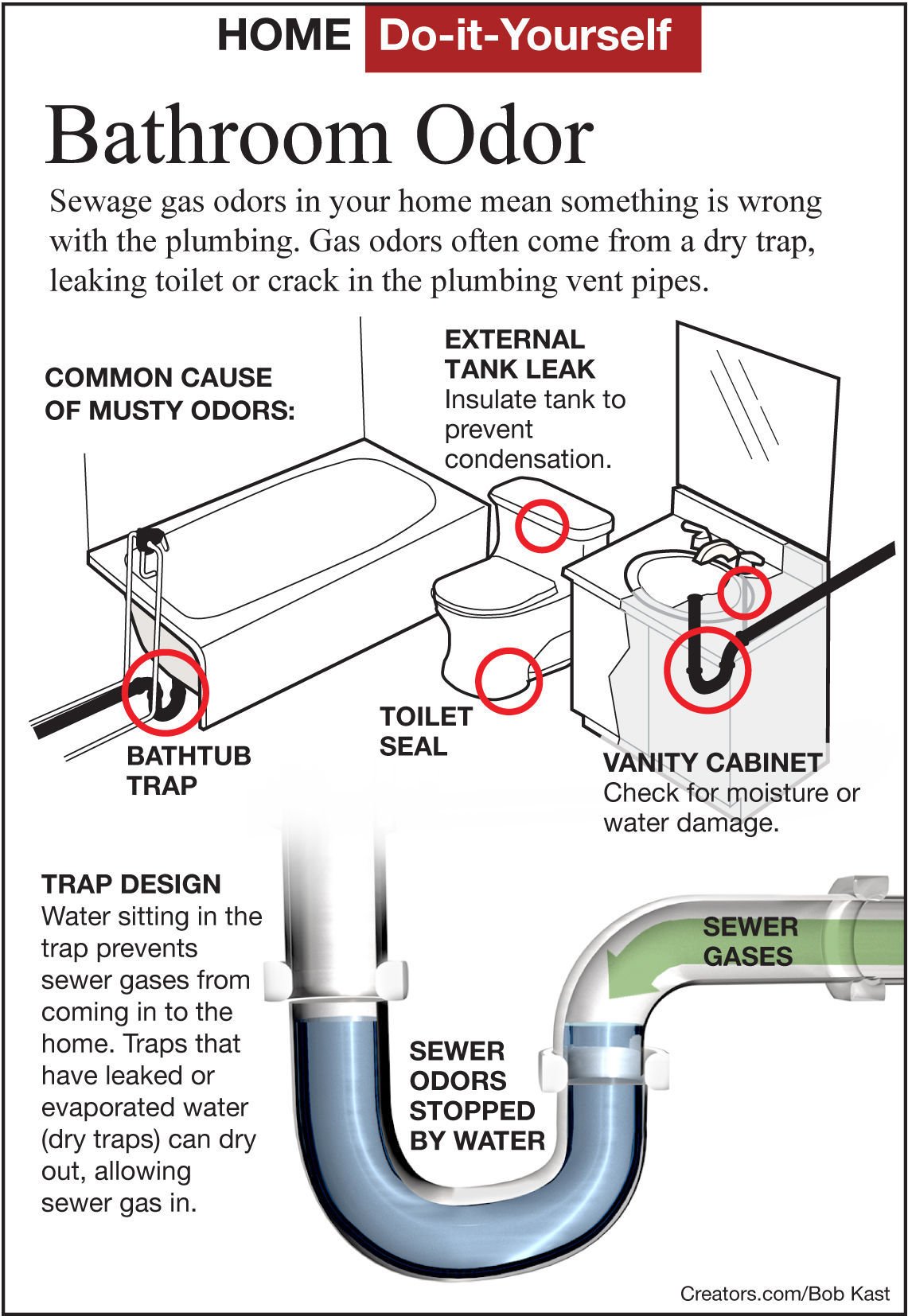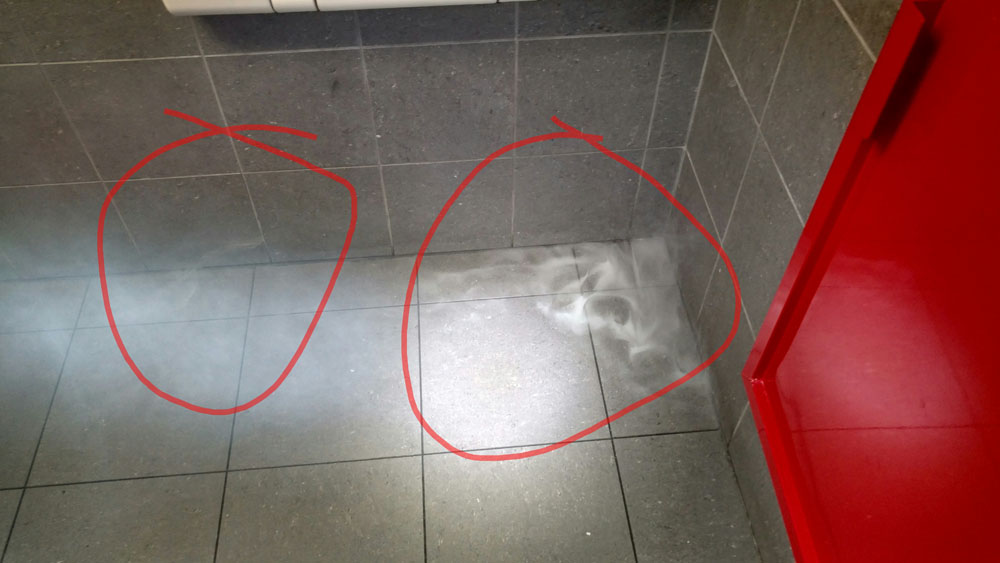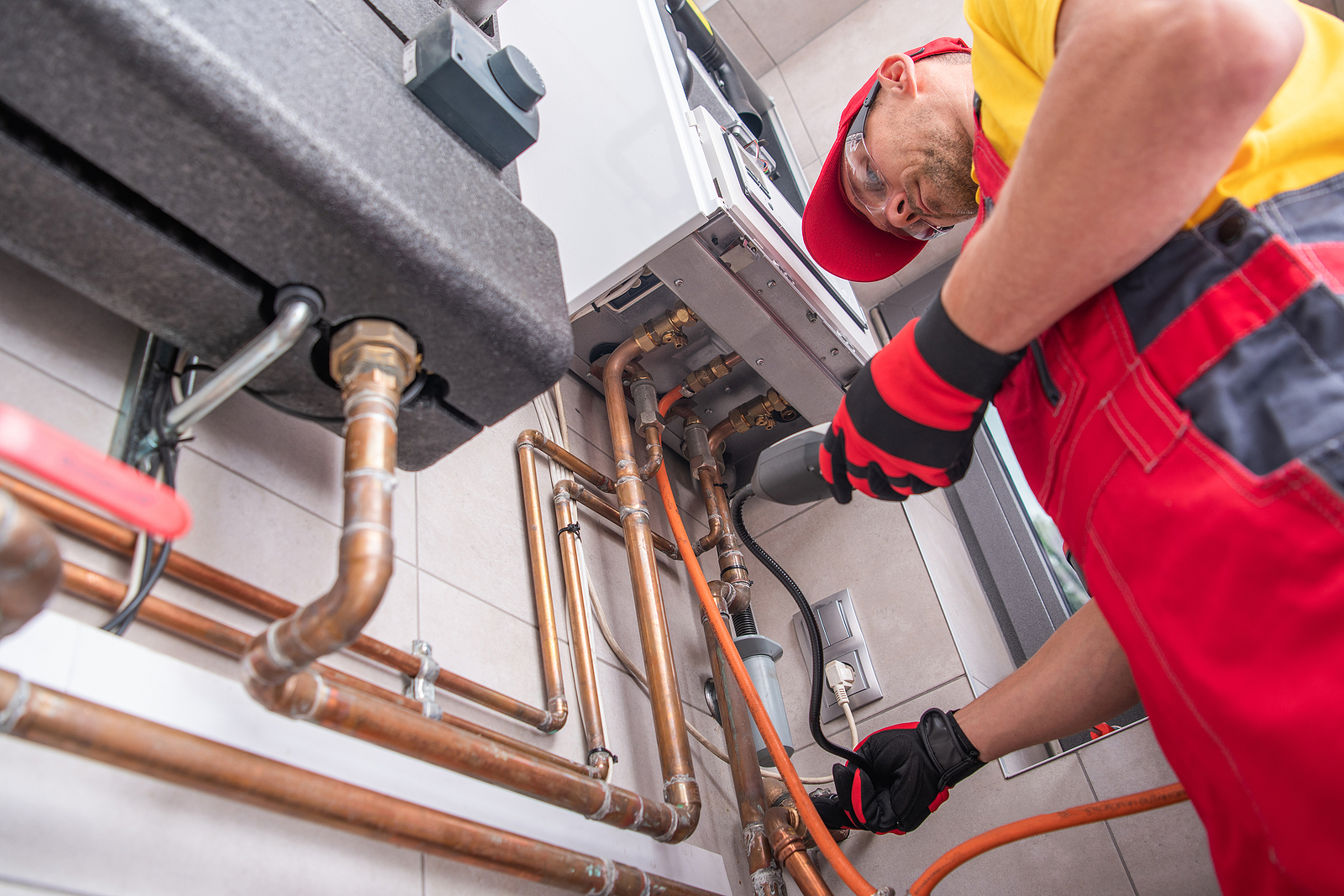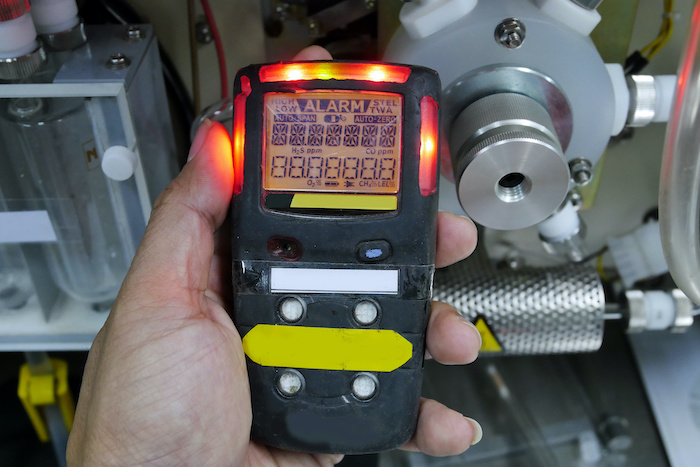Causes of Sewer Gas Smell from Kitchen Sink Drain
If you've noticed a distinct smell coming from your kitchen sink drain, it could be a sign of a bigger problem - sewer gas. This unpleasant odor is not only annoying, but it can also be a health hazard. Here are some of the common causes of sewer gas smell from your kitchen sink drain.
Clogged or Blocked Vent Pipes: Every plumbing system has vent pipes that allow sewer gases to escape outside. If these pipes become clogged or blocked, the gases can't escape and will instead come back up your sink drain, causing a foul odor.
Dry P-Traps: The P-trap is the curved pipe beneath your sink that holds a small amount of water. This water creates a seal that prevents sewer gases from entering your home. If the P-trap dries out, the seal is broken, and the gases can come up through the drain.
Cracked or Damaged Pipes: Over time, the pipes in your plumbing system can become damaged or start to wear out. This can create openings for sewer gases to escape into your home, causing a noticeable smell.
Improperly Installed Plumbing: If your plumbing was not installed correctly, it can cause issues with the vent pipes or P-trap, leading to sewer gas smells in your kitchen sink.
How to Get Rid of Sewer Gas Smell from Kitchen Sink Drain
Now that you know what could be causing the sewer gas smell in your kitchen sink drain, it's time to get rid of it. Here are some tips to help you eliminate the odor and keep it from coming back.
Clean Your Sink and Drain: Start by thoroughly cleaning your sink and drain. Use a solution of hot water and baking soda to scrub away any build-up that could be causing the odor.
Flush Your Drain with Hot Water: After cleaning, run hot water down your drain for a few minutes to flush out any remaining debris or bacteria.
Use a Natural Drain Cleaner: If you suspect there may be a clog causing the smell, try using a natural drain cleaner like a mixture of vinegar and baking soda to break it up and clear it out.
Check Your Vent Pipes: If you suspect your vent pipes may be clogged or blocked, you can try using a plumbing snake or call a professional plumber to clean them out.
Call a Professional Plumber: If you've tried the DIY solutions and still can't get rid of the sewer gas smell, it's best to call a professional plumber. They can identify the source of the problem and make any necessary repairs.
DIY Solutions for Sewer Gas Smell from Kitchen Sink Drain
If you're a DIY enthusiast, you may want to try some of these solutions to get rid of the sewer gas smell from your kitchen sink drain.
Make Your Own Drain Cleaner: As mentioned before, a mixture of vinegar and baking soda can be an effective natural drain cleaner. You can also try using lemon juice, salt, or hydrogen peroxide to clean and deodorize your drain.
Check Your P-Trap: If your P-trap is dry, you can try pouring a cup of water down the drain to refill it and create a seal. If the P-trap is cracked or damaged, you can replace it yourself with a new one from a hardware store.
Install a Drain Screen: To prevent debris from building up in your drain and causing odors, consider installing a drain screen. This will catch hair, food particles, and other debris before it goes down your drain.
Professional Solutions for Sewer Gas Smell from Kitchen Sink Drain
If the DIY solutions don't seem to be working, it's time to call in the professionals. Here are some of the solutions they may offer for getting rid of the sewer gas smell from your kitchen sink drain.
Hydro Jetting: This is a process that uses a high-pressure stream of water to clean out any clogs or build-up in your pipes.
Smoke Testing: A plumber may use a special machine to pump smoke through your plumbing system to identify any cracks or openings where sewer gases may be escaping.
Repair or Replace Pipes: If your pipes are cracked or damaged, a professional plumber can repair or replace them to eliminate the source of the sewer gas smell.
Preventing Sewer Gas Smell from Kitchen Sink Drain
As the saying goes, an ounce of prevention is worth a pound of cure. Here are some tips to help you prevent sewer gas smells from occurring in the first place.
Keep Your Sink Clean: Regularly clean your sink and drain to prevent build-up and potential clogs.
Run Water Regularly: Running water down your drain regularly can help keep the P-trap from drying out and losing its seal.
Be Mindful of What Goes Down Your Drain: Avoid putting food scraps, grease, and other debris down your drain to prevent clogs.
Have Your Plumbing Inspected Regularly: A professional plumber can inspect your plumbing system and catch any potential issues before they become bigger problems.
Common Culprits of Sewer Gas Smell from Kitchen Sink Drain
There are a few common culprits that may be causing the sewer gas smell from your kitchen sink drain. These include:
Food Scraps: Food scraps can easily get stuck in your drain and create a build-up of bacteria, leading to unpleasant odors.
Grease and Oil: Pouring grease and oil down your drain can cause clogs and attract bacteria that produce foul odors.
Soap Scum: Soap scum can accumulate in your drain and create a breeding ground for bacteria that produces sewer gas smells.
Signs of a Sewer Gas Leak from Kitchen Sink Drain
If you suspect you may have a sewer gas leak from your kitchen sink drain, look out for these signs:
Foul Odor: The most obvious sign of a sewer gas leak is a foul odor coming from your kitchen sink drain.
Sink Backups: If your sink is frequently backing up and taking a long time to drain, it could be a sign of a clog causing the sewer gas smell.
Health Issues: Exposure to sewer gases can cause health issues such as headaches, nausea, and respiratory problems. If you experience these symptoms, it's important to get your plumbing checked for a potential gas leak.
Health Risks of Sewer Gas Smell from Kitchen Sink Drain
In addition to being unpleasant, sewer gas smells can also pose health risks. Here are some of the potential health issues that can arise from exposure to sewer gases:
Headaches: Breathing in sewer gases can cause headaches, dizziness, and lightheadedness.
Nausea: The foul odor of sewer gases can also cause nausea and stomach discomfort.
Respiratory Problems: Prolonged exposure to sewer gases can lead to respiratory issues such as coughing, wheezing, and difficulty breathing.
How to Detect a Sewer Gas Leak from Kitchen Sink Drain
If you suspect you may have a sewer gas leak from your kitchen sink drain, here are some steps you can take to detect it:
Check Your P-Trap: If your P-trap is dry, that could be a sign of a gas leak. You can also check for any cracks or damage in the P-trap.
Use a Smoke Test: As mentioned before, a plumber can use a smoke test to identify any cracks or openings in your plumbing system where sewer gases may be escaping.
Call a Professional: If you're unsure about the source of the smell or can't locate it yourself, it's best to call a professional plumber to inspect your plumbing system for a gas leak.
Importance of Fixing Sewer Gas Smell from Kitchen Sink Drain
Fixing the sewer gas smell from your kitchen sink drain is not only important for eliminating an unpleasant odor, but it's also crucial for your health and safety. Sewer gases can pose serious health risks and should not be ignored. Additionally, if left untreated, the source of the smell could lead to more significant plumbing issues that are more expensive to fix. Don't wait - address the issue as soon as possible to keep your home smelling fresh and your family safe.
Sewer Gas Smell From Kitchen Sink Drain: Causes and Solutions

Introduction
 When it comes to designing a house, the kitchen is often considered the heart of the home. It is where we cook and gather with family and friends, making it an important space that should be functional and inviting. However, a foul smell emanating from the kitchen sink drain can quickly ruin the atmosphere and become a major concern for homeowners. This unpleasant odor is not only a nuisance but also a potential health hazard. In this article, we will discuss the main causes of sewer gas smell from the kitchen sink drain and provide solutions to eliminate it.
When it comes to designing a house, the kitchen is often considered the heart of the home. It is where we cook and gather with family and friends, making it an important space that should be functional and inviting. However, a foul smell emanating from the kitchen sink drain can quickly ruin the atmosphere and become a major concern for homeowners. This unpleasant odor is not only a nuisance but also a potential health hazard. In this article, we will discuss the main causes of sewer gas smell from the kitchen sink drain and provide solutions to eliminate it.
What is Sewer Gas and Why is it Present in the Kitchen Sink Drain?
 Sewer gas is a mixture of gases that can include methane, ammonia, carbon dioxide, and hydrogen sulfide. It is produced by the decomposition of organic matter in sewage systems. Typically, sewer gas is carried away through vents and pipes and released outside. However, when there is a problem with the plumbing system, the gas can escape and enter your home, causing a foul smell.
The kitchen sink drain is a common entry point for sewer gas as it is connected to the main sewer line. If there is a blockage or damage in the pipes, the gas can seep through and enter your kitchen. This can happen due to a variety of reasons, which we will discuss in the next section.
Sewer gas is a mixture of gases that can include methane, ammonia, carbon dioxide, and hydrogen sulfide. It is produced by the decomposition of organic matter in sewage systems. Typically, sewer gas is carried away through vents and pipes and released outside. However, when there is a problem with the plumbing system, the gas can escape and enter your home, causing a foul smell.
The kitchen sink drain is a common entry point for sewer gas as it is connected to the main sewer line. If there is a blockage or damage in the pipes, the gas can seep through and enter your kitchen. This can happen due to a variety of reasons, which we will discuss in the next section.
Causes of Sewer Gas Smell From Kitchen Sink Drain
:max_bytes(150000):strip_icc()/sink-pipe-under-wash-basin-119001607-6f28aec4c66944efb7a9a38cb622ab8b.jpg) Clogged or Dirty Drain
One of the most common causes of sewer gas smell from the kitchen sink drain is a clogged or dirty drain. Over time, food particles, grease, and other debris can accumulate in the drain, creating a blockage. This not only causes the water to drain slowly but also traps the sewer gas inside the pipes, leading to a foul odor.
Damaged or Leaking Pipes
Another reason for sewer gas smell from the kitchen sink drain could be damaged or leaking pipes. Cracks, holes, or loose fittings in the pipes can allow the gas to escape and enter your home. This is not only a nuisance but also a potential health hazard, as sewer gas contains toxic substances that can be harmful if inhaled in large amounts.
Dry P-Trap
The P-trap is a curved pipe underneath the sink that is designed to prevent sewer gas from entering your home. It works by holding a small amount of water that creates a seal and blocks the gas from coming up through the drain. If the P-trap dries out due to infrequent use or a leak, it can allow the gas to enter your kitchen and cause a foul smell.
Clogged or Dirty Drain
One of the most common causes of sewer gas smell from the kitchen sink drain is a clogged or dirty drain. Over time, food particles, grease, and other debris can accumulate in the drain, creating a blockage. This not only causes the water to drain slowly but also traps the sewer gas inside the pipes, leading to a foul odor.
Damaged or Leaking Pipes
Another reason for sewer gas smell from the kitchen sink drain could be damaged or leaking pipes. Cracks, holes, or loose fittings in the pipes can allow the gas to escape and enter your home. This is not only a nuisance but also a potential health hazard, as sewer gas contains toxic substances that can be harmful if inhaled in large amounts.
Dry P-Trap
The P-trap is a curved pipe underneath the sink that is designed to prevent sewer gas from entering your home. It works by holding a small amount of water that creates a seal and blocks the gas from coming up through the drain. If the P-trap dries out due to infrequent use or a leak, it can allow the gas to enter your kitchen and cause a foul smell.
Solutions to Eliminate Sewer Gas Smell From Kitchen Sink Drain
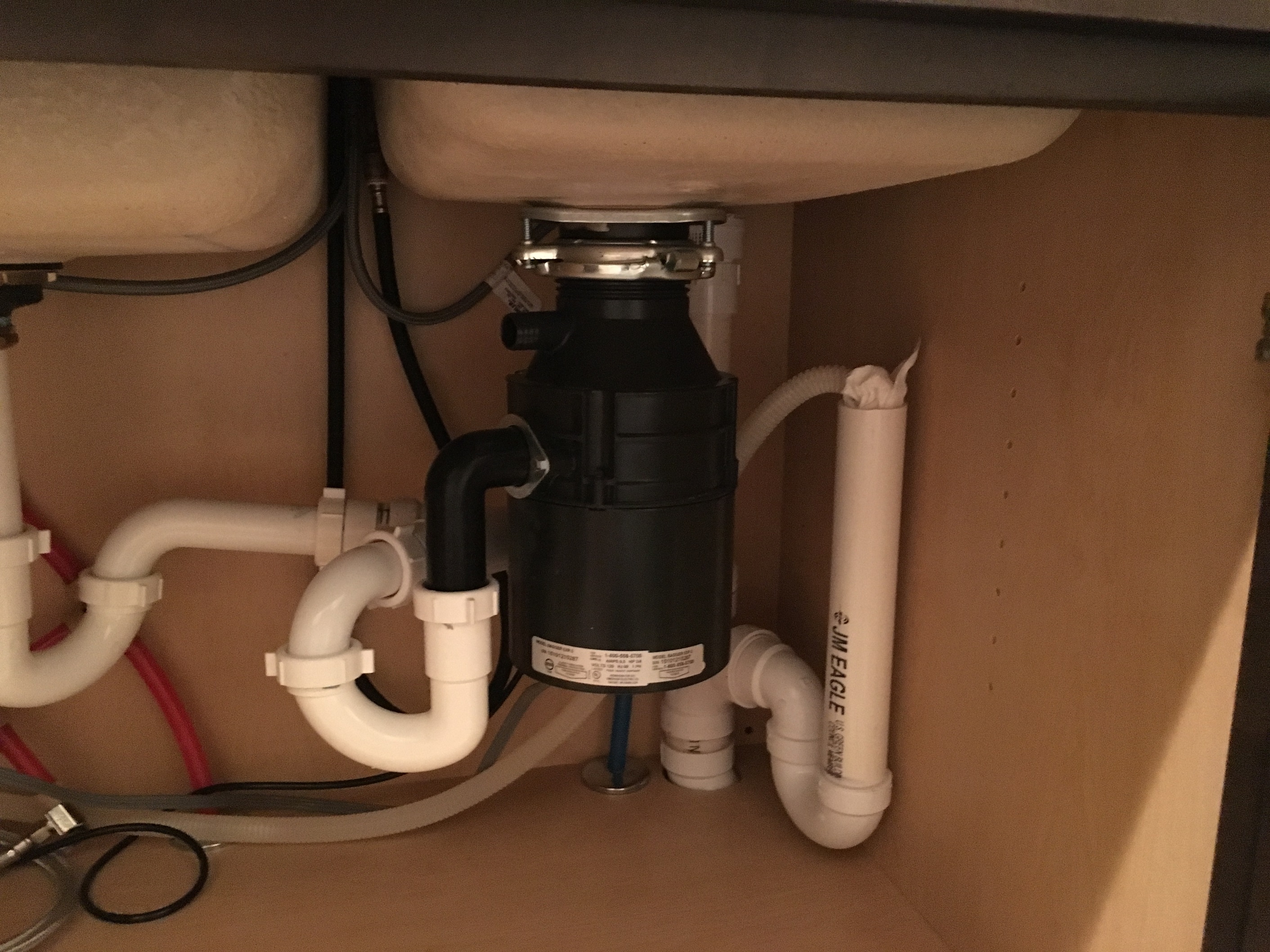 Clean the Drain
The first and easiest solution to eliminate sewer gas smell from the kitchen sink drain is to clean the drain. This can be done by pouring a mixture of hot water and baking soda down the drain, followed by vinegar. This will help break down any buildup and eliminate the odor. You can also use a drain snake to remove any stubborn clogs.
Repair or Replace Damaged Pipes
If the cause of the smell is damaged or leaking pipes, it is important to have them repaired or replaced by a professional plumber. This will not only eliminate the odor but also prevent any potential health hazards.
Run Water in Unused Sinks
To prevent the P-trap from drying out, it is important to run water in any unused sinks or drains in your home. This will help maintain the seal and prevent sewer gas from entering your kitchen.
Clean the Drain
The first and easiest solution to eliminate sewer gas smell from the kitchen sink drain is to clean the drain. This can be done by pouring a mixture of hot water and baking soda down the drain, followed by vinegar. This will help break down any buildup and eliminate the odor. You can also use a drain snake to remove any stubborn clogs.
Repair or Replace Damaged Pipes
If the cause of the smell is damaged or leaking pipes, it is important to have them repaired or replaced by a professional plumber. This will not only eliminate the odor but also prevent any potential health hazards.
Run Water in Unused Sinks
To prevent the P-trap from drying out, it is important to run water in any unused sinks or drains in your home. This will help maintain the seal and prevent sewer gas from entering your kitchen.
Conclusion
 Sewer gas smell from the kitchen sink drain is a common issue that can be caused by clogged drains, damaged pipes, or a dry P-trap. By understanding the causes and implementing the solutions mentioned above, you can eliminate the foul odor and enjoy a fresh and clean kitchen. However, if the problem persists, it is best to seek the help of a professional plumber. Don't let a foul smell ruin the heart of your home – take action to eliminate sewer gas from your kitchen sink drain today.
Sewer gas smell from the kitchen sink drain is a common issue that can be caused by clogged drains, damaged pipes, or a dry P-trap. By understanding the causes and implementing the solutions mentioned above, you can eliminate the foul odor and enjoy a fresh and clean kitchen. However, if the problem persists, it is best to seek the help of a professional plumber. Don't let a foul smell ruin the heart of your home – take action to eliminate sewer gas from your kitchen sink drain today.



